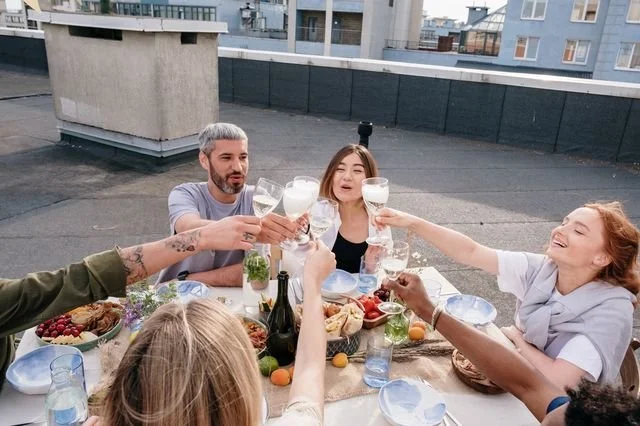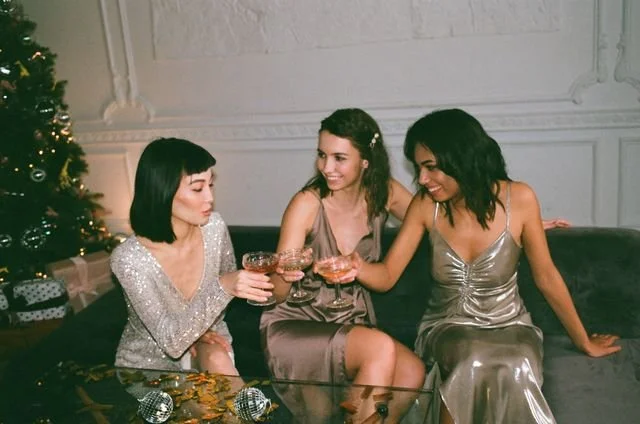If you visit my anxiety treatment specialty page, you will notice that the goal of counseling is not to eliminate anxiety. Anxiety and worry are normal and natural parts of life. You have anxiety because you are dealing with a situation that matters to you. You would not get anxious about going to a social gathering if that gathering was not something that you wanted to do. You do not have anxiety because you are bad or wrong or defective. You have anxiety because you are human.
So, when you experience the thoughts and feelings of anxiety as negative, you try to control them.
There are a variety of ways that you can try to exert that control. You might try to distract yourself to take your mind off of the anxiety. You can avoid activities and situations that might cause the anxiety to show up. There are lots of thinking strategies you can use to deal with the anxiety: analyzing yourself or the situation, focusing on positive thoughts, blame others or yourself for not being able to deal with the anxiety.
Another strategy you might use to deal with the anxiety is drinking. Over and over, TV commercials encourage you to have a drink to relax. However, the relationship between alcohol and anxiety can be more complicated than that. Many adults can safely drink in moderation. For others, alcohol may cause anxiety or aggravate pre-existing conditions like anxiety.
There are many ways to describe the unhelpful relationship between alcohol and anxiety. You may turn to alcohol (or other substances) to escape. You may drink to bring a feeling of normalcy; this is called self-medication. Feelings of anxiety can also include impulsivity, which makes it more likely to use substances in an unhelpful way.
Drinking can feel like a really good way to deal with anxiety. In many cases, it is a sanctioned behavior. Let’s say you are dealing with social anxiety. Having a beer or cocktail is perfectly acceptable, even encouraged, in many social settings. Drinking in a social situation is something I am supposed to do anyway, and it helps with may anxiety.
Drinking too much to deal with your anxiety can lead to some embarrassing situations, but there's also a molecular component as well. Alcohol causes changes in your brain chemicals, including gamma aminobutyric acid (GABA) that’s involved in regulating anxiety.
Your brain adjusts to the sedating effects of alcohol but may have trouble balancing itself again when your blood alcohol content starts to fall. That could leave you feeling more anxious than when you started, and that uneasiness may last for a day or more.
There are other ways that drinking to lower your anxiety can be problematic.
The drinking can end up being a crutch. Let’s say you have a couple of drinks when you go to a social gathering. Things go really well, but you end up attributing your success to the alcohol. Your meaningful interactions have nothing to do with your own ability. The only reason you were able to do that is the alcohol. With that belief, your self-esteem can suffer and create more anxiety.
Of course, it can go the opposite way as well. You have a few drinks to deal with your anxiety. With your inhibitions lowered, you might end up doing something inappropriate or embarrassing. The very thing you are trying to avoid with the alcohol ends up happening anyway.
There are some strategies you can use to address the use of alcohol to deal with your anxiety.
Plan ahead.
Decide what you’re going to drink before you get started. Maybe you’ll skip wine with dinner, so you can have a glass of port afterwards. As you think about ordering a drink, stop and wonder: Am I ordering this drink so I can enjoy it? Or am I ordering it as a way to deal with the anxiety?
Slow down.
If you do decide to have a drink, sip it slowly. Focus on enjoying the taste of the drink, instead of how it is going to change your mood.
Eat food.
Eating food with your drink allows your body to absorb alcohol more gradually. Fats and proteins are especially useful for slowing the process down. On the other hand, skip the salty snacks that will make you thirstier and more dehydrated.
Instead of putting yourself in social situations that will create anxiety and have the expectation of drinking, go for a hike or visit a science museum instead. Spend your leisure time working on hobbies rather than drinking beer while watching TV.
Resist social pressure.
Rehearse what to say if someone asks why you’re turning down a drink. Let your family and friends know you’re trying to cut back or you just aren’t interested in having a drink tonight.
My anxiety treatment specialty page will give you more information about how counseling can help with your anxiety.



